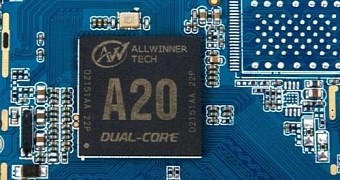In a strong move from the Chinese Government to force start its semiconductor industry, Alwinner Technology becomes the latest beneficiary of this 10 year and a trillion of yuan ($161.1 billion, £103.86 billion, €147 billion) plan by the Chinese authorities to create a word-class semiconductor business.
Being overshadowed by its other Asian rivals like Samsung and TSMC, the Chinese decided to begin a series of merges and strong-armed acquisitions in mainland China and across the world including the US. Although the plans to buy the US semiconductor company Micron were blocked by direct intervention of US authorities, powerful and almost forced merges happen in a row in Chinese territory.
The latest of these seem to happen between Allwinner and Rockchip, reports DigiTimes. Allwinner being an entry-level ultra-cheap application processors manufacturer for cheap smartphones and tablets may become a serious chip design house in China if the merge with Rockchip Electronics takes place. However, this being China, Allwinner won’t do it with its own money but with government financial support so we can see this as a government decision to turn Allwinner into a major Chinese chip manufacturer.
China is steamrolling merges of its own companies
Allwinner wasn’t the only chip manufacturer to benefit from this sort of money-rich strong arm maneuvers of the Chinese state. Spreadtrum Communications merged with RDA Microelectronics, and before Tsinghua stepped on US soil to buy Micron, it swallowed in turn Spreadtrum, ending up the country’s largest consumer electronics, chip and display manufacturer in China. Considering that it has Chinese Xi Jinping himself as one of the alumni and full government backing, it won’t surprise anybody to see Allwinner as well being “merged” with Tsinghua after buying Rockchip.
The company will develop application processors for wearable electronics and Internet-of-Things. Right now it is unknown if the company will compete against other Chinese designers of semiconductors or maintain in SoCs for ultra-low-power applications. However, it’s believed that the main beneficiary of these forced merges is no other than the Chinese government who wants as much as possible a complete independence of its semiconductors manufacturing industry, with key military applications in mind. Government funding a monopoly of sorts in Asia will not only create excellent quality applications but also increase the quality of products delivered to its key government institutions.

 14 DAY TRIAL //
14 DAY TRIAL //